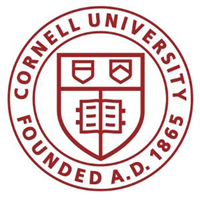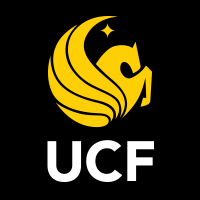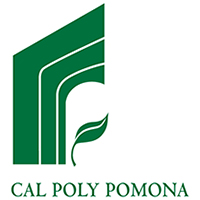What do they do?
Plan, direct, or coordinate activities of an organization or department that provides lodging and other accommodations.
Also known as:
Bed and Breakfast Innkeeper, Front Desk Manager, Front Office Director, Front Office Manager, Guest Relations Manager, Guest Services Manager, Hotel Manager, Night Manager, Resort Manager, Rooms Director
-
7.5%
Change
Ranks #45 in job growth rate160Job Openings
Ranks #14 in net job growth
-
Cornell University
Ithaca, NY
-
Florida International University
Miami, FL
-
University of Central Florida
Orlando, FL
-
University of Nevada-Las Vegas
Las Vegas, NV
-
Looking for colleges that offer a specific major? Use the College Match Tool to find your best-matched schools and discover your estimated Net Price!
- Doctorate or Professional Degree (1%)
- Master's degree (8%)
- Bachelor's degree (35%)
- Associate's degree (10%)
- Some college, no degree (23%)
- High school diploma equivalent (17%)
- Less than high school diploma (4%)
Most Popular Majors that prepare Lodging Managers
-
#1
-
Degrees Granted
8,675
-
Female Students
6,070
-
Male Students
2,605
-
Median Starting Salary
$40,600
-
-
#2
-
Degrees Granted
1,708
-
Female Students
1,095
-
Male Students
613
-
Median Starting Salary
$40,600
-
-
#3
-
Degrees Granted
722
-
Female Students
436
-
Male Students
286
-
Median Starting Salary
$40,600
-
-
#4
-
Degrees Granted
629
-
Female Students
401
-
Male Students
228
-
Median Starting Salary
$40,600
-
-
#5
-
Degrees Granted
215
-
Female Students
120
-
Male Students
95
-
Median Starting Salary
$40,600
-
People in this career often have these skills:
- Active Listening - Giving full attention to what other people are saying, taking time to understand the points being made, asking questions as appropriate, and not interrupting at inappropriate times.
- Service Orientation - Actively looking for ways to help people.
- Speaking - Talking to others to convey information effectively.
- Social Perceptiveness - Being aware of others' reactions and understanding why they react as they do.
- Management of Personnel Resources - Motivating, developing, and directing people as they work, identifying the best people for the job.
- Reading Comprehension - Understanding written sentences and paragraphs in work-related documents.
- Writing - Communicating effectively in writing as appropriate for the needs of the audience.
- Coordination - Adjusting actions in relation to others' actions.
- Negotiation - Bringing others together and trying to reconcile differences.
- Critical Thinking - Using logic and reasoning to identify the strengths and weaknesses of alternative solutions, conclusions, or approaches to problems.
- Active Learning - Understanding the implications of new information for both current and future problem-solving and decision-making.
- Monitoring - Monitoring/Assessing performance of yourself, other individuals, or organizations to make improvements or take corrective action.
- Persuasion - Persuading others to change their minds or behavior.
- Instructing - Teaching others how to do something.
- Complex Problem Solving - Identifying complex problems and reviewing related information to develop and evaluate options and implement solutions.
- Judgment and Decision Making - Considering the relative costs and benefits of potential actions to choose the most appropriate one.
- Time Management - Managing one's own time and the time of others.
- Learning Strategies - Selecting and using training/instructional methods and procedures appropriate for the situation when learning or teaching new things.
- Systems Evaluation - Identifying measures or indicators of system performance and the actions needed to improve or correct performance, relative to the goals of the system.
People in this career often know a lot about:
- English Language - Knowledge of the structure and content of the English language including the meaning and spelling of words, rules of composition, and grammar.
- Administration and Management - Knowledge of business and management principles involved in strategic planning, resource allocation, human resources modeling, leadership technique, production methods, and coordination of people and resources.
- Personnel and Human Resources - Knowledge of principles and procedures for personnel recruitment, selection, training, compensation and benefits, labor relations and negotiation, and personnel information systems.
- Customer and Personal Service - Knowledge of principles and processes for providing customer and personal services. This includes customer needs assessment, meeting quality standards for services, and evaluation of customer satisfaction.
- Mathematics - Knowledge of arithmetic, algebra, geometry, calculus, statistics, and their applications.
- Sales and Marketing - Knowledge of principles and methods for showing, promoting, and selling products or services. This includes marketing strategy and tactics, product demonstration, sales techniques, and sales control systems.
- Administrative - Knowledge of administrative and office procedures and systems such as word processing, managing files and records, stenography and transcription, designing forms, and workplace terminology.
- Computers and Electronics - Knowledge of circuit boards, processors, chips, electronic equipment, and computer hardware and software, including applications and programming.
- Economics and Accounting - Knowledge of economic and accounting principles and practices, the financial markets, banking, and the analysis and reporting of financial data.
- Public Safety and Security - Knowledge of relevant equipment, policies, procedures, and strategies to promote effective local, state, or national security operations for the protection of people, data, property, and institutions.
- Education and Training - Knowledge of principles and methods for curriculum and training design, teaching and instruction for individuals and groups, and the measurement of training effects.
- Communications and Media - Knowledge of media production, communication, and dissemination techniques and methods. This includes alternative ways to inform and entertain via written, oral, and visual media.
- Psychology - Knowledge of human behavior and performance; individual differences in ability, personality, and interests; learning and motivation; psychological research methods; and the assessment and treatment of behavioral and affective disorders.
People in this career often have talent in:
- Oral Expression - The ability to communicate information and ideas in speaking so others will understand.
- Oral Comprehension - The ability to listen to and understand information and ideas presented through spoken words and sentences.
- Written Comprehension - The ability to read and understand information and ideas presented in writing.
- Written Expression - The ability to communicate information and ideas in writing so others will understand.
- Problem Sensitivity - The ability to tell when something is wrong or is likely to go wrong. It does not involve solving the problem, only recognizing that there is a problem.
- Speech Recognition - The ability to identify and understand the speech of another person.
- Speech Clarity - The ability to speak clearly so others can understand you.
- Information Ordering - The ability to arrange things or actions in a certain order or pattern according to a specific rule or set of rules (e.g., patterns of numbers, letters, words, pictures, mathematical operations).
- Fluency of Ideas - The ability to come up with a number of ideas about a topic (the number of ideas is important, not their quality, correctness, or creativity).
- Deductive Reasoning - The ability to apply general rules to specific problems to produce answers that make sense.
- Inductive Reasoning - The ability to combine pieces of information to form general rules or conclusions (includes finding a relationship among seemingly unrelated events).
- Originality - The ability to come up with unusual or clever ideas about a given topic or situation, or to develop creative ways to solve a problem.
- Mathematical Reasoning - The ability to choose the right mathematical methods or formulas to solve a problem.
People in this career often do these activities:
- Provide basic information to guests, visitors, or clients.
- Resolve customer complaints or problems.
- Manage organizational or project budgets.
- Confer with organizational members to accomplish work activities.
- Monitor flow of cash or other resources.
- Coordinate operational activities with external stakeholders.
- Monitor facilities or operational systems.
- Conduct employee training programs.
- Monitor performance of organizational members or partners.
- Monitor activities of individuals to ensure safety or compliance with rules.
- Evaluate employee performance.
- Direct administrative or support services.
- Inspect condition or functioning of facilities or equipment.
- Prepare staff schedules or work assignments.
- Collect payments for goods or services.
- Interview employees, customers, or others to collect information.
- Hire personnel.
- Schedule product or material transportation.
- Purchase materials, equipment, or other resources.
- Maintain operational records.
- Implement organizational process or policy changes.
- Develop organizational policies or programs.
- Develop operating strategies, plans, or procedures.
- Document organizational or operational procedures.
- Guide patrons on tours.
- Assign resources or facilities to patrons or employees.
- Promote products, services, or programs.
- Manage guest services.
- Perform manual service or maintenance tasks.
This page includes data from:

 Occupation statistics: USDOL U.S. Bureau of Labor Statistics Occupational Employment Statistics
Occupation statistics: USDOL U.S. Bureau of Labor Statistics Occupational Employment Statistics









